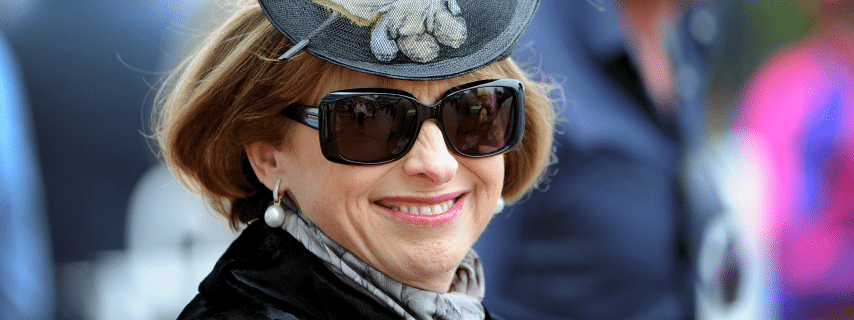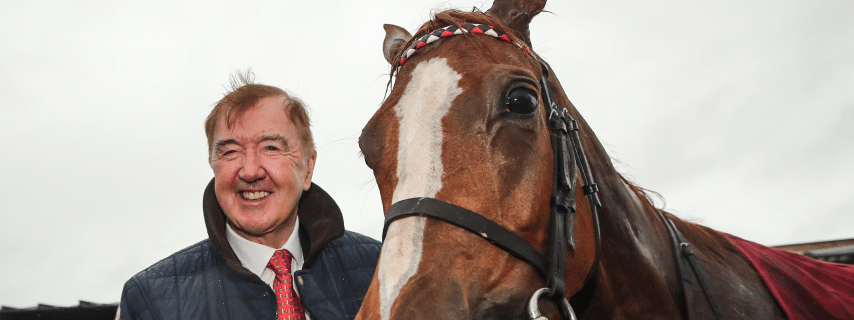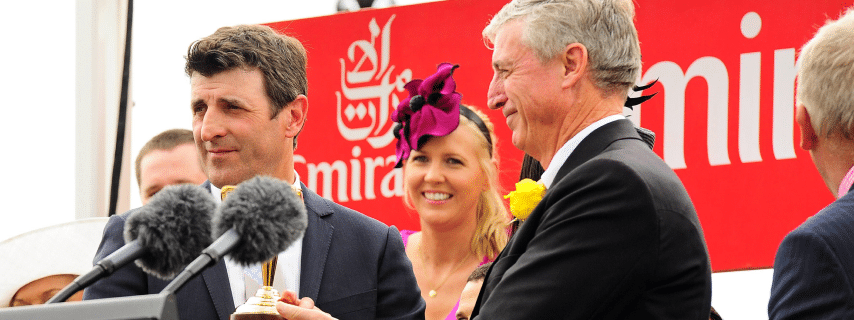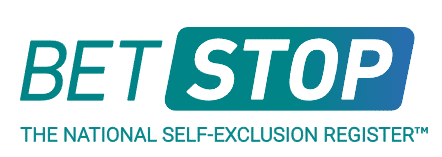The Melbourne Cup is known as the ‘race that stops a nation’, and rightly so. Behind every winning horse is a brilliant trainer who’s spent years honing their skills and knowledge. This article introduces you to these unsung heroes of the sport, the trainers who have etched their names in Melbourne Cup history. From the early beginnings of the Cup to the present day, we’ll explore the careers of these standout individuals. Let’s take a moment to appreciate their dedication and hard work, and how they’ve shaped this great Australian horse racing tradition.
A Tribute to the Titans: Top Trainers in Melbourne Cup History

Chris Waller
Despite having been incredibly successful with many horses, Chris Waller will always be remembered for training Winx.
The great mare won an amazing 25 Group 1 races. Her 2019 Queen Elizabeth Stakes success was Waller’s 100th top level success. In June of 2019, Chris Waller broke the all-time racing record for Group 1 wins in a season when he won his 18th.
Waller rose up the ranks from being foreman with Paddy Busuttin in New Zealand to winning multiple top races in Australia. He has landed four Australian Oaks, four Cox Plates and as many as 8 George Main Stakes.

Gai Waterhouse, Photo: IMAGO
Gai Waterhouse
It was a significant day on November 5th, 2013. That was the day Gai Waterhouse trained Melbourne Cup winner Fiorente, becoming the first female trainer to do so.
Waterhouse started off with her father Tommy Smith. She was given a training licence of her own in 1992 and has had a wonderful career ever since.
Her record is excellent and includes a Golden Slipper win to accompany the Melbourne Cup triumph. Since the 2016/17 season, Waterhouse has been in partnership with Adrian Bott. From their Tulloch Lodge base the pair remain very successful to this day.

Dermot Weld, Photo: IMAGO
Dermot Weld
A real trailblazer and one of the reasons European trainers attempt to win the Melbourne Cup now is because of Dermot Weld. The great Irish handler was the first from the northern hemisphere to win the race. His Vintage Crop scored in 1993 and opened the door to many others since.
In Europe Weld’s record is amazing. He has won 2 Prix de l’Abbaye’s, six Irish 1000 Guineas’, three Irish Derbies, six Irish St Legers as well as the 2000 Guineas, the Derby and the Oaks in England.
He managed to even bag a second Melbourne Cup. His Media Puzzle won the race in 2002.

Robert Hickmott, Photo: IMAGO
Robert Hickmott
Former AFL football player Robert Hickmott has had a second, even more successful career in horse racing. After transferring his skills, Hickmott became a Melbourne Cup winner among other things.
Hickmott was given the role of trainer for Lloyd Williams in 2009. He saddled his first Group 1 winner in 2019 when the outstanding Zipping won the Australian Cup.
Robert Hickmott’s training career reached a park in 2012. That year, his Green Moon won the Melbourne Cup at Flemington. He also won the Turnbull Stakes the same year. In 2016, Hickmott became a rare double winner of the Cup when his Almandin landed the major prize.

Joseph O’Brien
Once main rider for his famed father Aidan, Joseph O’Brien was a multiple Group 1-winning jockey. After turning his hand to training as a young man, he quickly became a Melbourne Cup winner.
Rekindling was O’Brien’s first Cup winner in 2017. As if that achievement wasn’t enough, he became a rare double winner as a trainer in 2020 when his Twilight Payment scored at Flemington.
O’Brien has also won the Cox Plate in Australia in 2021 with State Of Rest. Closer to home, O’Brien has won the Irish Derby, the Irish Gold Cup, the Prix Ganay, the Fillies’ Mile, the Prince of Wales’s Stakes and others.

William Forrester
Known by all and sundry as Black Bill in order to separate him from a cousin of the same name, William Forrester was a very successful trainer and owner. He owned Warwick Farm as well as numerous horses.
In the 1897 Melbourne Cup, Forrester’s achievements were outstanding. Not only did he win the quinella, but he did it with two brothers. Gaulus and The Grafter are the horses in question, the latter coming back in 1898 to win the race for himself after a protest was unsuccessful.
Ultimately, Forrester trained runners in the Melbourne Cup five times for his two wins. In the modern day, his winnings would have come to more than $4 million.

Frank McGrath
In a remarkable 65-year career, Frank McGrath was a brilliant jockey and trainer. A Hall of Famer since 2003, McGrath trained many top horses including Abundance, the 1902 AJC Derby winner. Abundance also won the St Leger in 1903.
Prince Foote also helped to make McGrath’s name. He won the 1909 AJC Derby, as well as both the Victoria Derby and the Melbourne Cup.
McGrath’s career went from strength to strength in the 1920’s. He won the Caulfield Cup, the Cox Plate and the Epsom Handicap. He also trained Peter Pan, winner of two Melbourne Cups.

George Hanlon
One of the true Melbourne Cup greats was trainer George Hanlon. Very few trainers manage three Melbourne Cup wins, but Hanlon has managed exactly that.
Piping Lane was Hanlon’s first Cup winner in 1972. He followed that up with wins in the 1978 race (Arwon) and in 1984 with Black Knight. For his efforts, Hanlon was inducted into the Australian Racing Hall of Fame in 2002.
The South Australia man was still a major supporter of horse racing into his 90’s. The three-time Melbourne Cup winner died in 2010 aged 92.

Jim Scobie
James Scobie, known to everyone as Jim, was a Victoria native who rode a winner aged 20 and then turned his hand to training.
A jumping man, Scobie both trained and rode various jumps winners. In 1900 he truly hit the headlines however when winning the Melbourne Cup. His horse Clean Sweep was his first Cup Champion, but he did go on to win three more times.
After waiting 22 years, King Ingoda was Scobie’s second Cup winner. He was followed by Bitalli and Trivalve.

Richard Bradfield
Richard Bradfield was one of the forefathers of making the Melbourne Cup what it is. He trained from 1882 right up to 1940, winning many big races along the way.
Bradfield won an outstanding four Melbourne Cups. He scored with Patron (1894), The Victory (1902), Night Watch (1918) and also Backwood (1924). Bradfield actually trained the first three horses home in the 1918 Melbourne Cup.
A major highlight of Bradfield’s career was his record of training apprentices. He was eventually inducted into Australia’s Racing Hall of Fame in 2005.

Walter Hickenbotham
After learning his trade with top racing trainer and owner John Tait, Walter Hickenbotham made his own great name in racing.
Training from 1886 onwards, Hickenbotham quickly reached Melbourne Cup greatness. His victory in the 1888 renewal came courtesy of Mentor.
Hickenbotham was also Carbine’s handler. Carbine won the 1890 Melbourne Cup along with plenty of other major events. Among Hickenbotham’s 136 major race wins, he won two more Melbourne Cups in 1896 and 1905. Racing media of the day commented on how, after Carbine was injured, Hickenbotham treated him rather than celebrate his win.

John Tait
Having moved from Scotland, John Tait began a training career in Bathurst and it was to be a very successful one. He moved across to Sydney to continue his adventure, winning the St Leger in 1850 and 1851. He also landed the Australian Plate and the Queen’s Plate in 1851.
The Barb was Tait’s best horse. He won 17 races including the Melbourne Cup and two Sydney Cups. With Glencoe in 1868, The Pearl in 1871 and The Quack in 1872, Tait was to win three more Melbourne Cups. Tait entered the Hall of Fame in 2006.

Lee Freedman
Lee Freedman is truly one of the all-time greats. Among almost 4000 winners have been well over 120 Group 1 winners, five of those being Melbourne Cups. He has also won four Golden Slippers, four Caulfield Cups and two Cox Plates.
Willing to travel, alongside seven Melbourne Premierships has come a Singapore Premiership. The latter was achieved in 2018.
Freedman is the most successful Melbourne Cup trainer other than Bart Cummings. He won with Tawrrific in 1989, Subzero in 1992, Doriemus in 1995 and twice with the great Makybe Diva (2004 and 2005).

Etienne de Mestre
Etienne de Mestre experienced a majorly successful 30-year racing career.
de Mestre trained the winner of five Melbourne Cups. They were all achieved in the first 18 years of the race’s existence. He held the record for Melbourne Cup wins for almost 100 years.
Via Archer, de Mestre won the first two Melbourne Cups ever in 1861 and 1862. Later, he trained Tim Whiffler (1867), Chester (1877) and finally Calamia (1878). Ultimately, de Mestre’s Melbourne Cup winning record was broken by Bart Cummings in 1977. Cummings went on to win an incredible twelve Melbourne Cups.

Bart Cummings
The great Bart Cummings was one of the most popular, successful and emulated race horse trainers ever. Known as the ‘Cups King’, Cummings won the Melbourne Cup an incredible 12 times. That is a record which is possibly never to be broken.
Cummings has the Order of Australia among various other accolades. He won the Cup in 1965, 1966, 1967, 1974, 1975, 1977, 1979, 1990, 1991, 1996, 1999 and 2008.
Notable Cup winners trained by Cummings include Galilee, double winner Think Big, Kingston Rule and his last winner Viewed.
Cummings left a legacy hard to match in horse racing, though the family name is still a prominent one in Australian racing.



